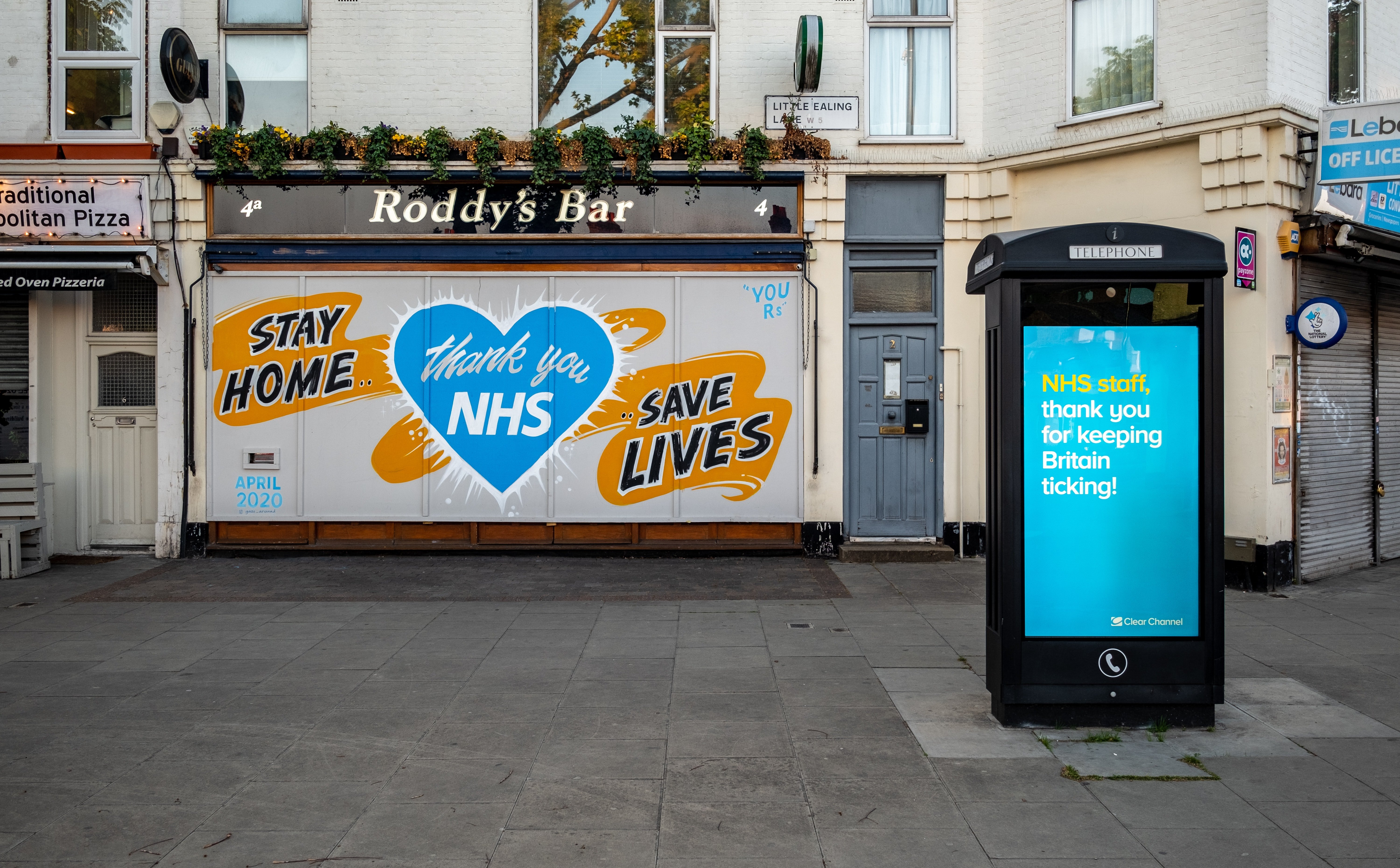Is a Lack of Digital Inclusivity Slowing NHS Progression?
4 minute read | 08/02/2021

The Coronavirus has ushered in a renewed acceleration towards a ‘digital-first’ NHS. In September 2020, the Public Policy Institute published the ‘Accelerating Digital Healthcare’ White Paper, if you’d like to read our original take on it, click here. Five months on, the sentiment of the paper continues to resonate, proving more urgent as we begin the climb out of the worst period of the pandemic to date.
Uniting the twenty-two recommendations was a call for increased pressure to be applied in the healthcare sector to bring technology to the forefront of modernising proposals within the NHS. Recognising the importance of digital elevation, the Government allocated a budget of £4.7bn for the digital transformation strategy between 2016/17 and 2020/21.
Naturally, the pandemic presented an unforeseen challenge in front of the 2016 investment, yet conversely, it also highlighted the importance for such imperative modernisation. Within the NHS’ Long Term Plan vision, appreciation was shown to the challenges of moving towards a ‘digital-first’ NHS. However, an overarching theme remained the same: there is a severe lack of digital inclusivity - taking form as a lack of digital literacy, connectivity and accessibility - obscuring the view of a technologically-regenerated NHS.
Digital Literacy
Digital literacy refers to a person or a group of people’s ability to understand and compose information via digital platforms. The employment of easy to navigate, responsive technology only serves its purpose if everyone is able to understand how to use it. Within recommendation three of the paper, it is proposed that training in digital technology needs to be included in clinical and non-clinical curricula and continued through professional development programmes.
With support from tech providers, hospital trusts and Government initiatives combined, an effort to educate and inform can be made. This allows the movement not only towards a digital-first NHS, but the empowerment of its employees, enabling them to grow in confidence through the use of digital tools therefore escalating their provision of care.
The importance of digital literacy extends to patients as well; the topic of ‘patient empowerment’ has been a key talking point at global health conferences and aligns with the NHS’ Long Term Plan to increase patient involvement in their own care. However, such involvement would require patients to have a comprehensive understanding of the technology being used. Therefore due effort would need to be shown in educating patients as well as their caregivers, or at least giving them that opportunity.
‘Patients and Healthcare Professionals are only as digitally enabled as the quality of available tools allow. Most people have never been taught how to use Facebook, Amazon or book a flight ticket online, yet do so extensively and successfully. That is because the customer experience of these services has been prioritised, researched, funded and continuously reviewed in order to make them as user friendly as possible.’ - The White Paper
Connectivity
Maintaining a WiFi network for healthcare facilities at a basic level covers simple access to the internet and often not hospital wide. Perhaps it charges patients and staff for its use and provides a poor service that leaves an endlessly buffering video or an image that just won’t load. By upgrading to a faster connection gives the opportunity to layer on additional services from software providers such as access to the NHS App or dementia support channels, we would see an improvement in the patient experience and the offerings of the facility.
COVID-19 has highlighted the importance of a robust, reliable connection as patients were unable to see their friends and family or receive the same level of emotional, companioned care that they would have experienced previously. Thus, a strong internet connection would allow them video-call their families and remain connected during the loneliest of times.
Outside of in-facility provisions, the NHS’ Long Term Plan requires patients to be able to ‘manage their own health, guided by digital tools’. If this goal is to come into fruition, a higher standard of internet connectivity is required in homes across the country. Furthermore, we return to the issue of literacy, a connection is only half the battle and these issues work paradoxically, one cannot be implemented without the other.
Accessibility
A number of patients, at home or within a healthcare facility, may be impeded by additional needs that make it harder for them to use tablets or smartphones, or at a higher level; the ‘digital tools’ that allow for at-home health management. Considering this, services need to be designed to meet all user’s needs, including those dependent on assistive technology to access digital services.
At SPARK TSL we recognise that we are one of the technological innovators that holds a part of this digital revolution in our hands. During 2020 we deployed our SPARK® Media: Unite platform within Oxford University Hospitals NHS Foundation Trust. Unite is a virtual-visiting solution that was installed on trust-owned Samsung tablets. It allowed inpatients to video-call their friends and family and find entertainment through TV, print media and Radio. To read more about the work with the Foundation Trust read our blog here. We are able to provide the connection, platform and support through our 24/7 support team to tackle a part of the digital inclusion issue.
Digital inclusion is only an aspect of a wide effort to modernise the NHS and respond to the necessary progressions ushered in by the Covid-19 pandemic. Elevating areas such as the NHS App and medical technology and the way in which it is procured all work concurrently with digital inclusivity. The paper states that ‘all citizens will ultimately become digital citizens, but they must feel empowered and confident alongside a digitally aware workforce’, yet this does not come without a cultural shift in education, connectivity and accessibility which are undoubtedly precursors for a ‘digital-first’ NHS.
Interested in how technology will influence 2021? Read our guide:
About the author
Rebecca O'Donovan
Becky is the Marketing Director at SPARK TSL, of whom she has worked for since 2012. She is responsible for high-level marketing strategy focusing on lead generation and aiding the vision of the business to ensure business growth.
More articles by the author
Related articles
 Company News
Company News
We're Returning to North West Connect This September | SPARK TSL
 Healthcare Industry
Healthcare Industry
Supporting Healthcare Innovation at Stockport NHS Foundation Trust
As part of our ongoing mission to transform the healthcare experience for both patients and staff, SPARK TSL ...
 Patient Experience
Patient Experience
How Could Technology Support Patient Experience in the NHS?
SPARK® TSL held a private roundtable with a patient experience & engagement focus. NHS delegate's ...


